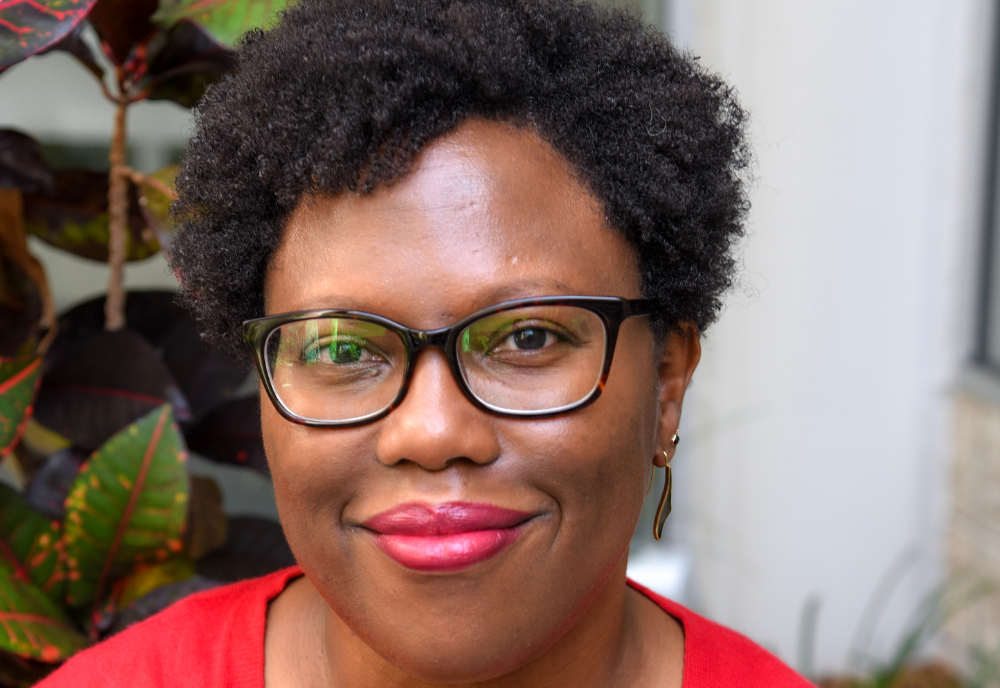Miranda Sloan is celebrating her 21st year working at USF in advising and student support services, and has added to her toolbelt a certification in appreciative advising to further support students in her charge.
Equipped with an undergraduate degree in English from the University of Central Florida, a master’s degree in college student personnel from Western Illinois University and an education specialist degree from USF, Sloan initially started work at the USF Lakeland campus. She later transferred to a role in the College of Education and then eventually joined the College of Public Health in February of 2019 as a graduate academic advisor.
Sloan said it is important to emphasize her role in graduate advising as there are unique challenges that graduate students face.
"A lot of our students work full time or support families of their own, in addition to having academic responsibilities, so we support any needs they have in decision-making to balance those roles so that they are able to get the most out of their degree programs,” she said.
While regular duties include helping students understand university policies and processes and support with referrals needed for other services that are available on campus, there are specific times of the year that influence the type of support Sloan offers.
“During registration season, a lot of the questions are related to electives, certificates and what is required for the program,” Sloan said. “A student might have a question about course load and I'll point out details like the full-time program for the MPH is five semesters but the part-time program is just seven semesters. So, I will pose questions like ‘Since part-time is two extra semesters, is it worth it to stress yourself out when you're going to still be able to graduate within the same year?’”
Sloan said sharing information supports and empowers students to make informed decisions about their academic journey.
"I can't make the decisions, but I can share information with students so that they can make the best choice for themselves,” she said. “That is what interested me in earning a certificate in appreciative advising.”
Sloan sought additional professional development by earning a certification in appreciative advising though a two-year process that was largely virtual.
"I wanted more tools for the toolbox and I wanted those tools to be applicable in several different areas,” Sloan said.
“The foundation of appreciative advising is based on the theory of appreciative inquiry and asking open-ended questions so that people can provide a bit more insight to generate their own options based on their experiences and values,” she said. “Appreciative inquiry is to allow the people involved to have input in the decision-making process based on their perspectives."
According to the appreciative advising website, there are six phases of appreciative inquiry: disarm, discover, dream, design, deliver and don’t settle. Sloan said that each of these phases is used as a tool and do not need to be followed in order.
“One of the things that drew me to pursue this certification is the way it sets a foundation for partnership between the advisor and the advisee,” she said.“ Creating this partnership offers another opportunity within the student’s experience to reinforce the important role that collaboration plays in academic and professional contexts.”
Equipped with the knowledge gained from her certification, Sloan said she is able to establish a structured approach for her work and enhance collaboration with students.
"I want to be able to support them in those decisions and not just tell them to pick something,” she said, “This framework allows me to provide guidance for students."
She also said that the versatility of appreciative advising has a relevance beyond advising contexts.
"This is also great for coaching or a framework for anyone working with someone else to achieve clarity and a plan towards the goals they have. A couple of times I've used it on myself,” Sloan said. “I want to be a good partner with all the constituents I work with, and this is one way that has helped me do it.”
